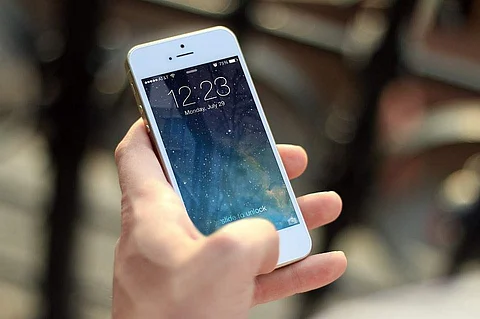

Excessive use of mobile phones is making people lose sleep and become less productive, according to an Australian study that found a jump in 'technoference' over the past 13 years.
Researchers from Queensland University of Technology (QUT) in Australia surveyed 709 mobile phone users across Australia aged 18 to 83 in 2018, using questions replicated from a similar survey back in 2005.
They then compared the findings and discovered significant increases in people blaming their phones for losing sleep, becoming less productive, taking more risks while driving and even getting more aches and pains.
"When we talk about technoference we're referring to the everyday intrusions and interruptions that people experience due to mobile phones and their usage," said Oscar Oviedo-Trespalacios from QUT.
"Our survey found technoference had increased among men and women, across all ages," said Oviedo-Trespalacios.
"For example, self-reports relating to loss of sleep and productivity showed that these negative outcomes had significantly increased during the last 13 years," he said.
The findings, published in the journal Frontiers in Psychiatry, suggest that mobile phones are potentially increasingly affecting aspects of daytime functioning due to lack of sleep and increasing dereliction of responsibilities.
According to the survey, one in five women (19.5 per cent) and one in eight men (11.8 per cent) now lose sleep due to the time they spend on their mobile phone.
About 12.6 per cent of the men said their productivity decreased as a direct result of the time they spend on their mobile — compared to none in 2005 — and 14 per cent of women have also noticed a productivity decline.
Over 54 per cent of women believe their friends will find it hard to get in touch with them if they do not have a mobile (up from 28.8 per cent), and 41.6 per cent of men thought this.
About 8.4 per cent of women and 7.9 per cent of men have aches and pains they attribute to mobile phone use, researchers said.
The survey results also indicated that phones were being used as a coping strategy, with one in four women and one in six men saying they'd rather use their phone than deal with more pressing issues.
"Rapid technological innovations over the past few years have led to dramatic changes in today's mobile phone technology — which can improve the quality of life for phone users but also result in some negative outcomes," said Oviedo-Trespalacios.
"These include anxiety and, in some cases, engagement in unsafe behaviours with serious health and safety implications such as mobile phone distracted driving," he said.
Social entrepreneur Neha Upadhyaya selected by Yale University among 2019 World Fellows
NASA cancels historic women's spacewalk, claims they couldn't find well-fitted spacesuits
PM Modi tweets link to buy Main Bhi Chowkidar merchandise online. Here's what else is up for grabs
Karnataka govt plans three new engineering colleges even though seats remain empty
Kerala Varma College curbs curfew to 7.30 pm: Angry women hostellers say they'll return at 8.30 pm
